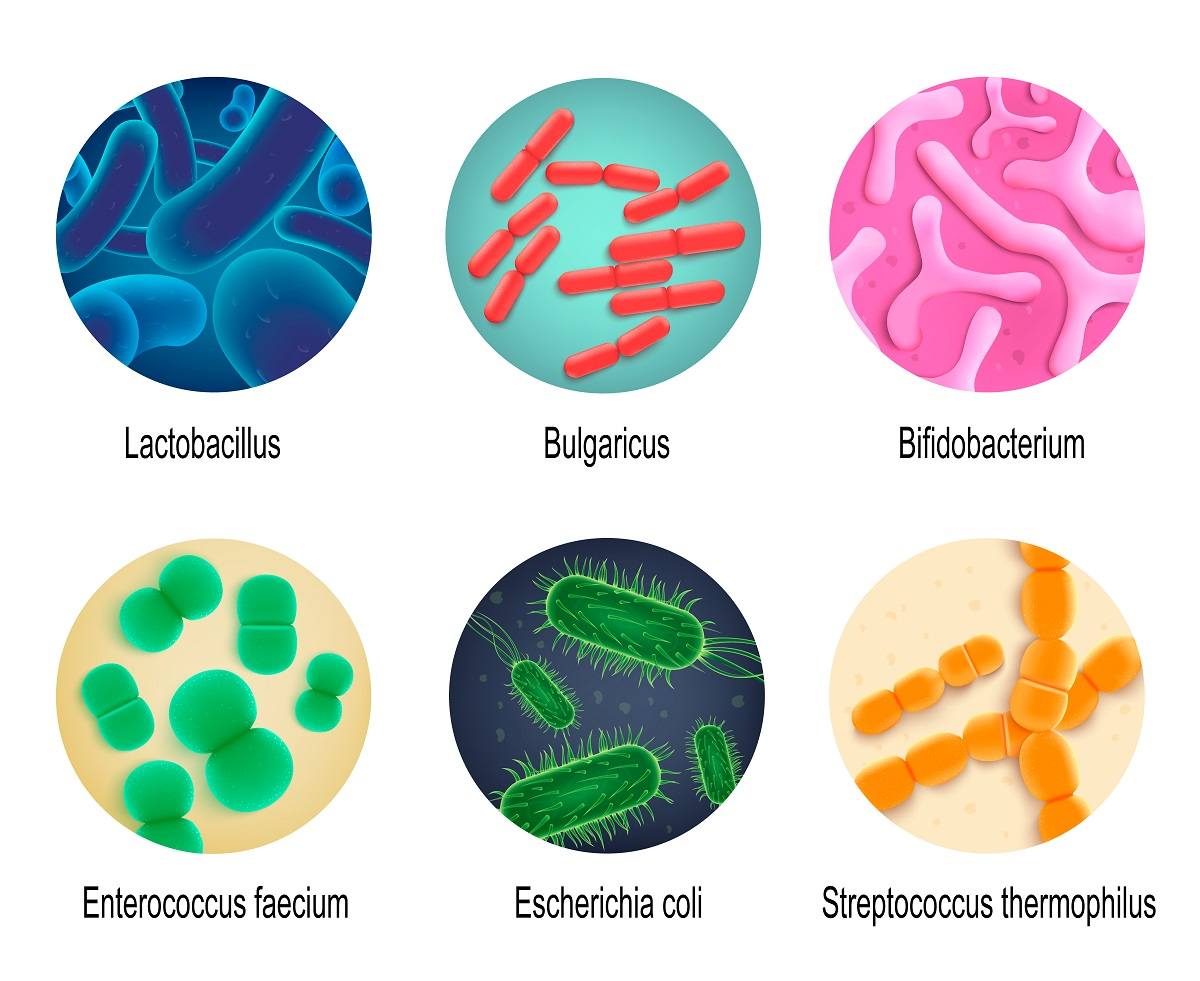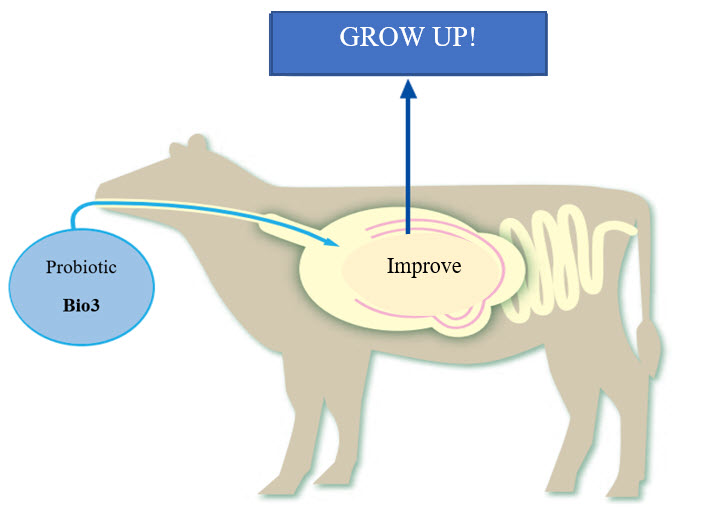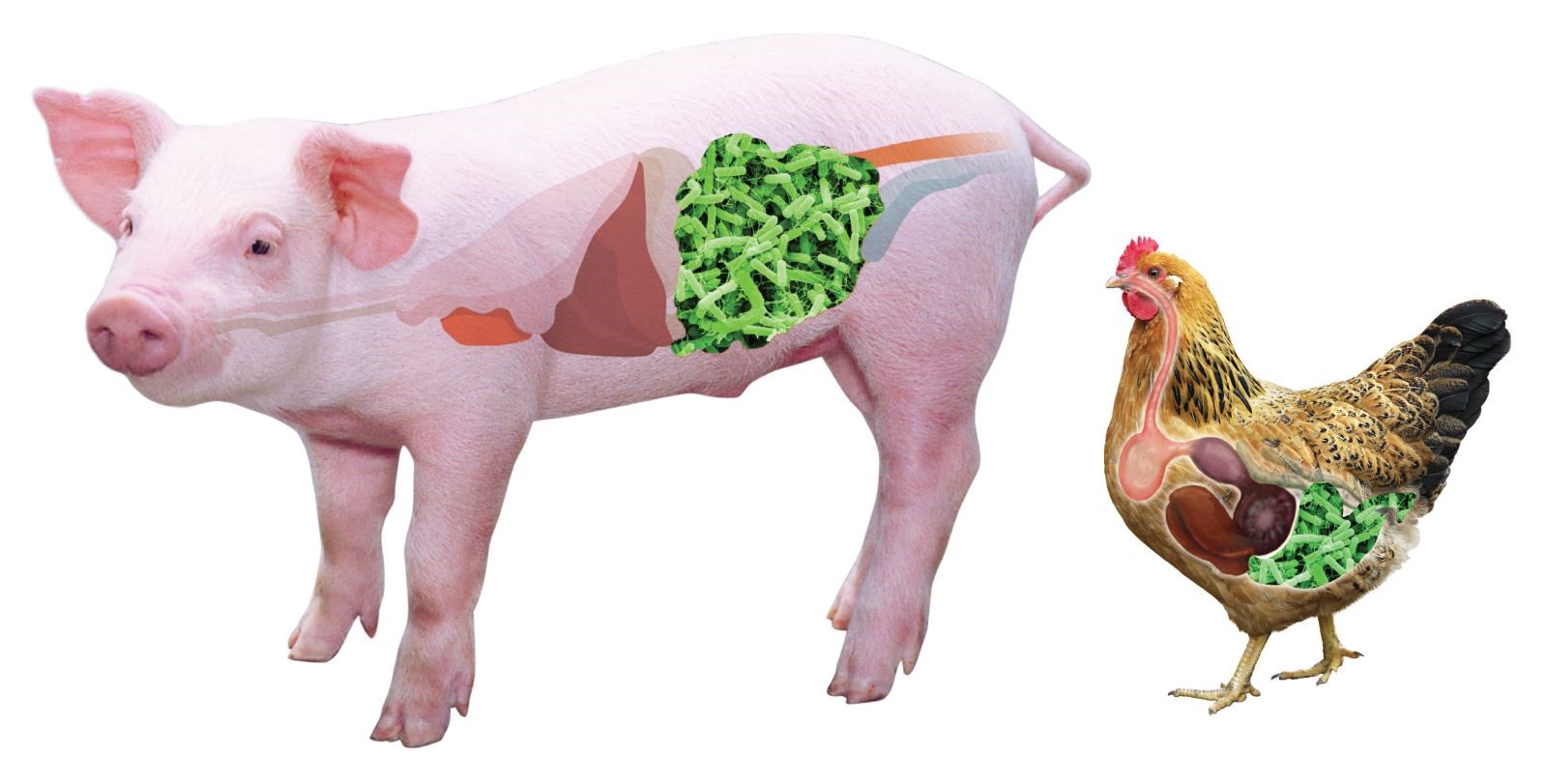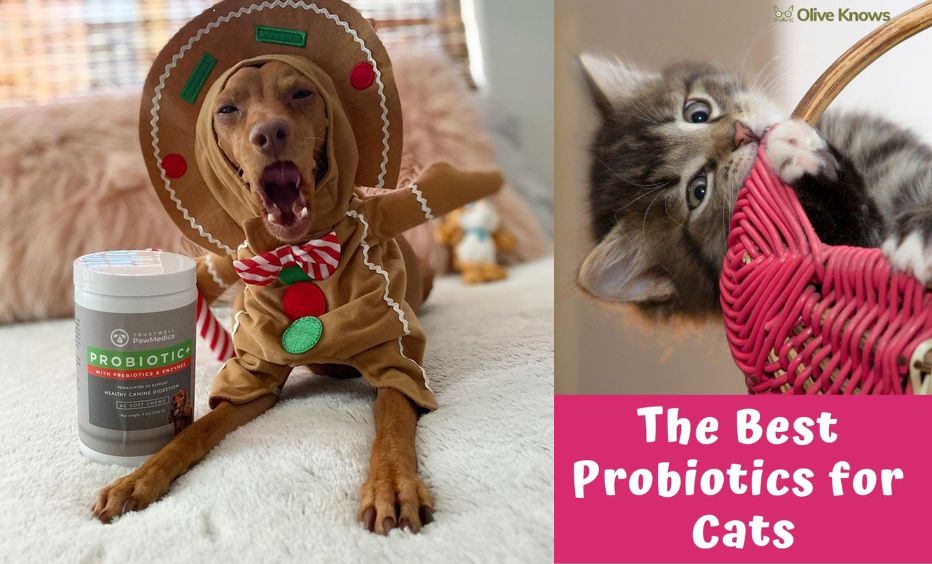Probiotics, also known as beneficial bacteria, are a group of different types of bacteria, which often live in natural symbiosis in the digestive tract of your dog, cat, as well as many other animals, typically: lactobacillus, bifidobacterium, etc.

Probiotics are known to be a type of digestive enzyme that promotes the balance and growth of the intestinal flora. Currently, many alternatives to antibiotic are being studied to determine their pre-harvest effectiveness in reducing foodborne pathogens. There is a delicate balance between normal and pathogenic microorganisms residing in the animal's digestive tract. This balance can be affected by poor livestock conditions, diseases or stressors (e.g. transport, meteorological conditions, lack of feed and improperly stored feed). In general, lactic acid-producing bacteria, butyric acid, saccharifying bacteria can be beneficial to animals. Their ability to grow and strengthen their health is predicated on one or more of the following factors:
- Prevents colonization of the intestinal tract by pathogenic bacteria such as Escherichia coli and Salmonella
- Changes in GI absorption rates and levels of nutrients
- Inhibits the growth of pathogenic bacteria and affects the balance of beneficial bacteria in the intestinal tract.
The dairy industry is a dynamic sector that is critical to satisfy the increasing demand for dairy products. Due to the growing pressure of the global population, antibiotics have been administered as growth promoters to increase production by limiting the effects of pathogenic infection in dairy cattle. However, the non-therapeutic use of antibiotics in livestock diets was banned by the European Union in 2006 due to increasing safety concerns regarding antibiotic resistance, antibiotics release into the environment and the persistence of chemical residues in animal products.
It has been shown that probiotics supplementation can improve the health and performance of dairy cows and calves, serving as an alternative to antibiotics.

Addition of yeast culture to the diet improves productivity in both heifers and lactating cows, including:
- Improves the fermentation process in the rumen and reduces the production of methane gas.
- Yeast cells provide growth factors for gastrointestinal tract microbiota, stabilize ruminal pH, scavenge oxygen, and create the anaerobic environment required by ruminal microorganisms.
- Supplementation of live yeast enhances fiber, degrading the bacteria population, improves fiber digestion, and makes structural carbohydrates such as cellulose and hemicellulose more available as an energy source for the host animals.
- Reduces meal intervals and stimulates forage feed intake and nutrient digestibility.
- Impacts the feeding behavior of dairy cows through increased feeding frequency.
- Optimizes rumen function, resulting in more nutrient bioavailability, which consequently improves the milk production performance while ensuring the digestive comfort of the dairy cow.
In addition to affecting dairy cows, calves, beef cattle, etc., Probiotics are also for poultry to prevent salmonella infection.

The Center for Disease Control and Prevention estimates that Salmonella causes about 1.35 million infections, 26,500 hospitalizations, and 420 deaths in the US each year. Most of these infections are foodborne and the culprits are often said to be eggs and poultry. Associate professor of food microbiology in the College of Agriculture, Health and Natural Resources, Mary Anne Amalaradjou, has received a US$150,000 grant from the USDA’s SARE program to study a probiotic supplement to control Salmonella in hatchlings and help them develop a healthy microbiome. Amalaradjou’s intervention will spray unhatched eggs with a probiotic supplement and provide the hatchlings with an additional supplement through their water as they are transported to grow-out farms where the researchers will continue the treatment. This research is based on Amalaradjou’s previous work which found probiotics can significantly reduce Salmonella populations on eggs and reduce its colonization in chicken intestinal cells. Through this project, Amalaradjou says, aiming to develop a holistic approach to control Salmonella in chicks while also improving their performance. Her approach focuses on improving the health of hatchlings’ gut microbiomes as a means of combatting pathogenic colonization.
Not only livestock, poultry, these beneficial bacteria in the pet's digestive tract compete for food with harmful bacteria, making it impossible for harmful bacteria to grow and cause diseases for dogs and cats such as: digestive disorders, diarrhea, nausea and dyspepsia. At the same time, they will stimulate and send signals to the immune-system to help strengthen the immune system, increase the rate of food digestion, support growth, avoid bloating and help regulate inflammation. Helps stabilize the beneficial bacteria in the gut microbiomes, preventing the growth of harmful bacteria. In addition, digestive enzymes inhibit rot-fermenting bacteria, reduce odors and ammonia concentration in the barn.

Using probiotics in raising pigs in particular or cattle and poultry in general has the effect of maintaining the balance of intestinal bacteria, preventing digestive disorders, enhancing intestinal immunity, and stimulating growth, increase the efficiency of feed conversion. Using probiotics together with other additives such as organic acids and herbs can completely eliminate antibiotics added to the feed. However, only when used properly, the breeding efficiency of probiotics can be fully promoted.
The above are some tips shared by Tomita Pharmaceuticals Vietnam Co., Ltd. We hope you will have more knowledge about Probiotics. However, the product from Japan, famous for cherry blossoms, has not been launched currently in Vietnam despite its reputation for quality and safety for both humans and animals.
Tomita will launch Probiotics products from Japan with reasonable prices, reputable quality for your farms and animals!
Please don't forget to wait and contact us when you need advice and choose to buy Probiotics products to improve animal health and increase the quality of the agricultural industry!
Thank you!
By Ms.Thuy Linh


 Vietnamese
Vietnamese  日本語
日本語  English
English 



